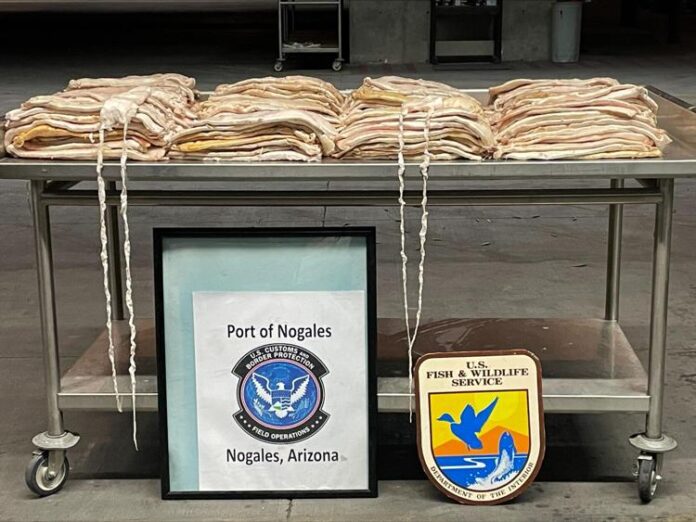
U.S. Customs and Border Protection (CBP) officers seized 242 pounds of Totoaba swim bladders with an estimated value of $2.7 million.
The Totoaba fish is protected by the Convention on International Trade in Endangered Species of Wild Fauna and Flora and the Endangered Species Act. They were seized at the Area Port of Nogales.
“This seizure is thought to be the second largest seizure of its kind in the U.S. and the largest Totoaba seizure in Arizona, to date,” according to a June 12 news release.
On April 13, CBP officers working at the Mariposa trade facility discovered 270 swim bladders of Totoaba fish concealed within a commercial shipment of frozen fish fillets.
CBP officers contacted U.S. Fish and Wildlife Service to take possession of the bladders. DNA testing indicates these bladders are the endangered species Totoaba macdonaldi native to the Gulf of California in Mexico.
“Totoaba is so profitable that it is known as the ‘cocaine of the sea,’” according to the Smithsonian Institute. “Their swim bladders are sold on the Chinese black market for traditional medicine and cosmetics.”
Totoaba fish have been listed as an endangered species under the Endangered Species Act since 1979.
“The swim bladders of this species and other similar species worldwide are prized in Traditional Chinese Medicine and as an Asian cultural delicacy,” according to the news release. “Because the species is federally protected, in both the U.S. and Mexico, it is illegal to take, possess, transport, or sell Totoaba.”
Homeland Security Investigations, along with U.S. Fish and Wildlife Service, is investigating the smuggling attempt.
Republished with the permission of The Center Square.












